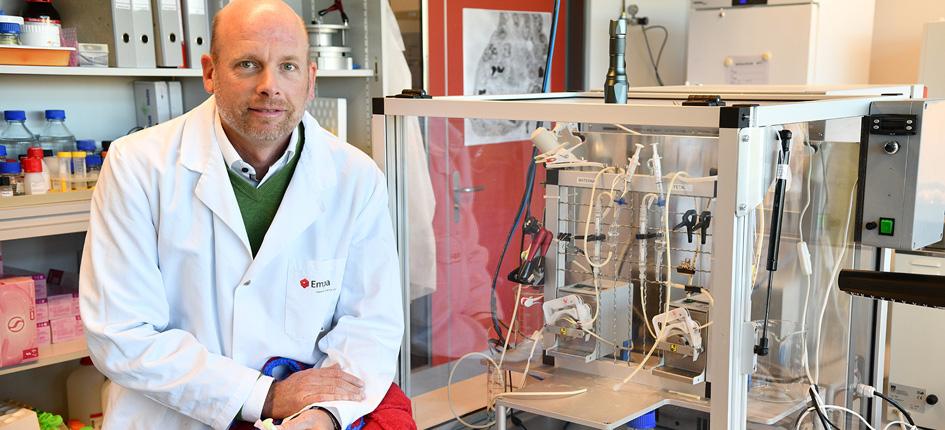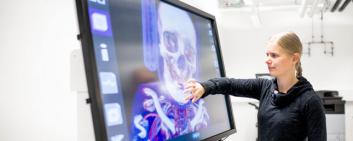A newly developed method at Empa shows how much of a virus is able to penetrate down to the innermost layer of various types of face masks. According to a press release, practical applications of this method will be sought by Empa and 15 other research, industrial and healthcare organizations as part of the ReMask project. The objective of this project is to develop innovative concepts for more effective face masks that are both more comfortable for the wearer and more sustainable too.
In this method, artificial saliva containing test particles is sprayed onto a stretched-out mask at Empa’s Biomimetic Membranes and Textiles laboratory in St.Gallen. The dye rhodamine is used for this, which emits red light as soon as viruses are damaged. Using this fluorescence and with the help of a transmission electron microscope, the researchers can find out at which point a virus fails to penetrate a multi-layer mask in the event of droplet infection and which mask components need to be more efficient.
“We needed new analytical methods to precisely understand the protective function of newly developed technologies such as virus-killing coatings”, comments Empa researcher René Rossi from the Biomimetic Membranes and Textiles laboratory in St.Gallen. His findings have been published in the journal “Scientific Reports”.
As the fluorescence “reliably, quickly and inexpensively” indicates that viruses have been killed, the new method could also accelerate the development of surfaces capable of killing viruses too, according to lab leader Dr. Peter Wick. This would mean that the time-consuming and expensive tests for surfaces with antiviral properties could be limited to promising product candidates.






